The Chess Works of Jerome Bibuld
As years go by, we often wonder about people who have entered our lives and have perhaps made an impression. In the chess world, there was a person who served tirelessly in helping smaller federations, particularly those in Africa and the Caribbean. He was also known for his support of “Afro-American” players and lent his support by helping them in their aspirations. His name is Jerome “Jerry” Bibuld.
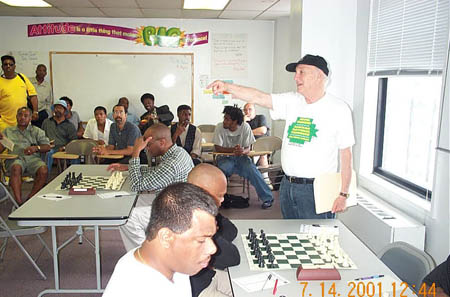
Organizer and Arbiter Jerry Bibuld before the start
of the Wilbert Paige Memorial. Photo by Daaim Shabazz.
Jerry became known not only for his amazing photography and the documentation of many master-level players of African descent, but for his advocacy of “chess justice”. On a personal note, I remember writing him a letter about a Pan-African chess network/magazine I was starting. He was excited at the idea and began sharing a plethora of information… including his compilation of “Afro-American” masters.
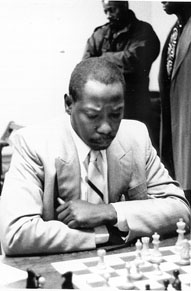
National Master Wilbert Paige
Photo by Jerry Bibuld.
In 1990, I spent the summer in New York working for Sports Illustrated on Avenue of Americas. It was also during that summer that Jerry Bibuld, (then FM) Maurice Ashley and I took an important trip to the 1990 World Open in Philadelphia.
I had met Ashley at the 1989 U.S. Open in Chicago and we reconnected at New York’s famous Washington Square Park. I got a glimpse at the legendary hustlers in action. After we watched the spectacle for some time, I shared with him the business plan of a chess network. Ashley was immediately sold.
He mentioned he was going to visit the World Open with Jerry. I tagged along the next morning. Jerry picked me up bright and early and we were off to Philly. The conversation in the car was amazingly rich about a variety of chess and political topics. I took copious notes. Jerry was certainly in his element in these conversations and spoke with tremendous passion.
While in Philadelphia, I saw many of the “Afro-American” players for the first time. I spanned the room seeing Alfred Carlin, Emory Tate (whom I had known), Pete Rogers and Stephen Booth (later Muhammad). As I pitched my idea, I was able to gain support for my chess network from many including a Philadelphia master named Wilbert Paige. I was impressed by his humble demeanor and his enthusiastic support. The importance of Paige will be apparent later in this article. This idea would later become a website called, “The Chess Drum“.
An International Arbiter, Jerry has been an advocate for chess advancement in the African Diaspora for decades. He often provided his directing services to federations in Africa and the Caribbean. In fact, as a condition to use his photography, he suggested New In Chess subscriptions to one of his beloved federations. Three that he mentions are Uganda, Kenya and Mozambique. While he has not been active in the past decade due to health concerns, his past contributions are still revered. Below are some of his photographic gems.
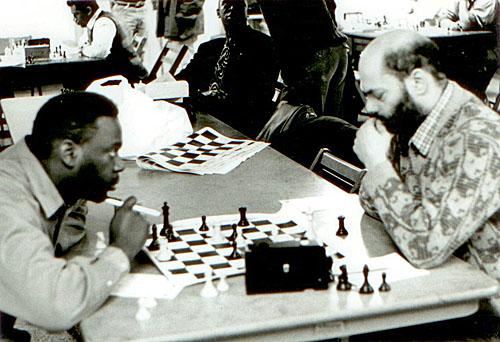
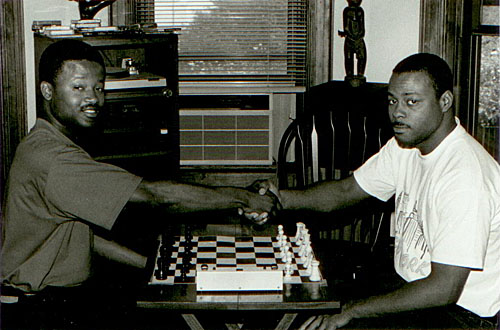
.jpg)
.jpg)
.jpg)

.jpg)
.jpg)
Top to Bottom: Nate Jackson vs. the late Mark Meeres at 1992 Unity tournament; Maurice Ashley and William Morrison beginning a 30-game “Black Bear” blitz session in June 1996; Louis Smith and Sherman Maduro playing for Dutch Antilles at 1996 Olympiad in Yerevan, Armenia; Ugandan (men) at 2002 Olympiad in Bled, Slovenia; Angola (men) at 2002 Olympiad; Botswana (women) at 2002 Olympiad, Jamaica (women) at 2002 Olympiad; Nigeria (women) at 2002 Olympiad. Photos by Jerry Bibuld.
Upon meeting Jerry, one will get a rather concrete view of where he stands on issues. He is not one to mince words and appears to take unpopular, but principled positions without hesitation. While he eschews racial designations such as “Black” or “White” he prefers geopolitical labels such as “Afro-American” and “United Statesian”. In the worst of cases, you could be given the invective of a “moral bacillus” if you were thought to be supporting unacceptable views.
Jerry is someone whose drive can be appreciated from the standpoint of fighting for justice against those whom he declares are depriving subjects of their human rights and justice. Because of his activism, he ran afoul with New York University and was expelled in 1952. It is common to hear him recount these experiences of the turbulent 50s and 60s, but he also took on international causes. I succinctly remember receiving literature in the mail about tennis players who he castigated for playing in South Africa during the apartheid era. He then rallied for another anti-apartheid cause.
.jpg)
.jpg)
.jpg)
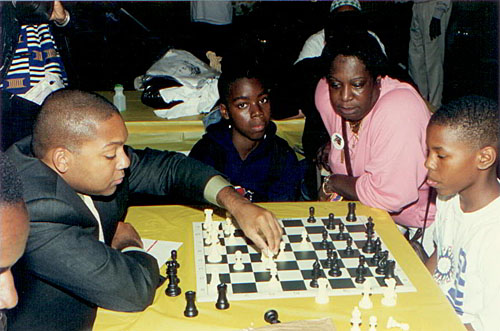
.jpg)
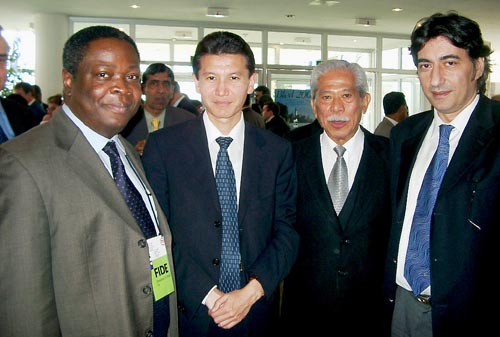
Top to Bottom: GM Amon Simutowe; IM Stephen Muhammad; IM Watu Kobese; Trumpter Wynton Marsalis playing chess at Harlem Chess Center; Maurice Ashley at 2001 National Open; FIDE officials… Gregory Omuku, Kirsan Ilyumzhinov, Florencio Campomanes, Georgios Makropoulos. Photos by Jerry Bibuld.
Jerry was instrumental in helping to convince FIDE to sanction the South Africa Chess Federation for what he felt was the defacto support of apartheid policies. At the same time, he supported an anti-apartheid cadre of players which included Watu Kobese, Deon Solomons and the Solomon brothers (including now GM-elect Kenny Solomon). Perhaps the crowning moment of his career was organizing the historic Wilbert Paige Memorial tournament held in Harlem, New York in the legendary Hotel Theresa (where both Fidel Castro lodged and Malcolm X held his meetings).
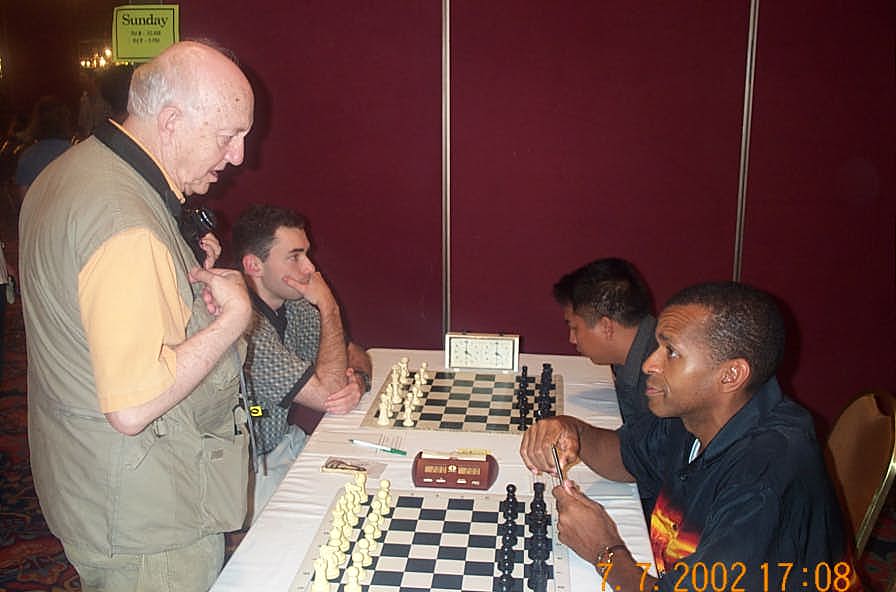
Jerry Bibuld discussing norm possibilities with FM Stephen Muhammad
at 2002 World Open. Muhammad got his norm.
Photo by Daaim Shabazz.
Here is a rather interesting self-portrait with an even more interesting self-admission.
“Although born and bred in the United States of America – and living in CT – I consider myself an immigrant into Afro-America, essentially because all of my family, except my two brothers, is Afro-American. It is my belief that Afro-America is a colony of the United States. When it becomes a sovereign state — if I live that long — I shall apply for citizenship in Afro-America. I have hopes that citizenship will be granted me, because of the status of my immediate family and in recognition of services rendered the nation.”
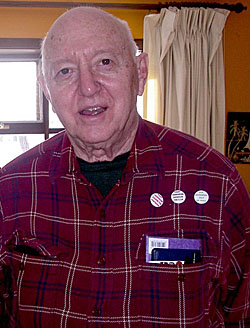
Jerry Bibuld in an undated photo.
Photo courtesy of Jerry Bibuld (Myspace)
Many years ago, Jerry compiled a rating list of “Afro-American” National Masters which I consider a rather important historical document. I am not sure whether he continues to maintain the document, but it was useful in the establishment of The Chess Drum’s initial “Drum Majors” list. I expanded the list to include Pan-African players outside of the U.S. While he is battling health challenges today, he is still keen to know about some of the rising Afro-American talents in today’s game.
Jerry would certainly be glad to know that there are three sensations coming out of New York (Justus Williams, Josh Colas and James Black, Jr.) and possibly represent the next wave of history in chess excellence. Darrian Robinson and Rochelle Ballantyne also represent talent in the legacy of Baraka Shabazz.
I last spoke with Jerry in 2009 to notify him that IM Michael Schleifer had passed away. Schleifer was an Afro-Canadian whose parents immigrated from Jamaica. He had taken the train from Canada to Harlem to compete in the Wilbert Paige Memorial chess tournament. It was perhaps an addition that made this tournament all the more special. The assembly of such strong players of African descent has to go down as one of the proudest moments in Jerry Bibuld’s career. Wilbert Paige would have approved of such a spirit.
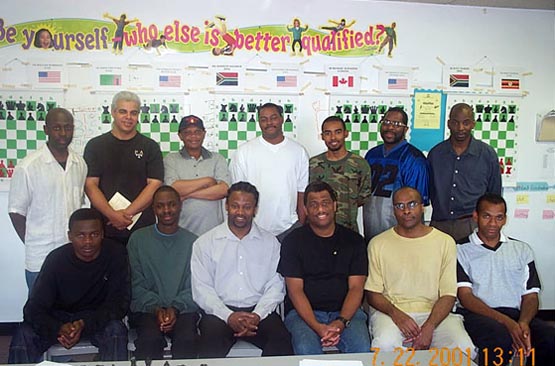
2001 Wilbert Paige Memorial players and commentators. Seated (L-R): IM Amon Simutowe, NM Grace Nsubuga, GM Maurice Ashley (commentator), FM Ronald Simpson, IM Michael Schleifer, FM Stephen Muhammad. Standing (L-R): NM Jerald Times (commentator), NM Ernest Colding, IM Watu Kobese, FM William Morrison, FM Kenny Solomon, NM Norman Rogers, NM Elvin Wilson (commentator). Photo by Daaim Shabazz.

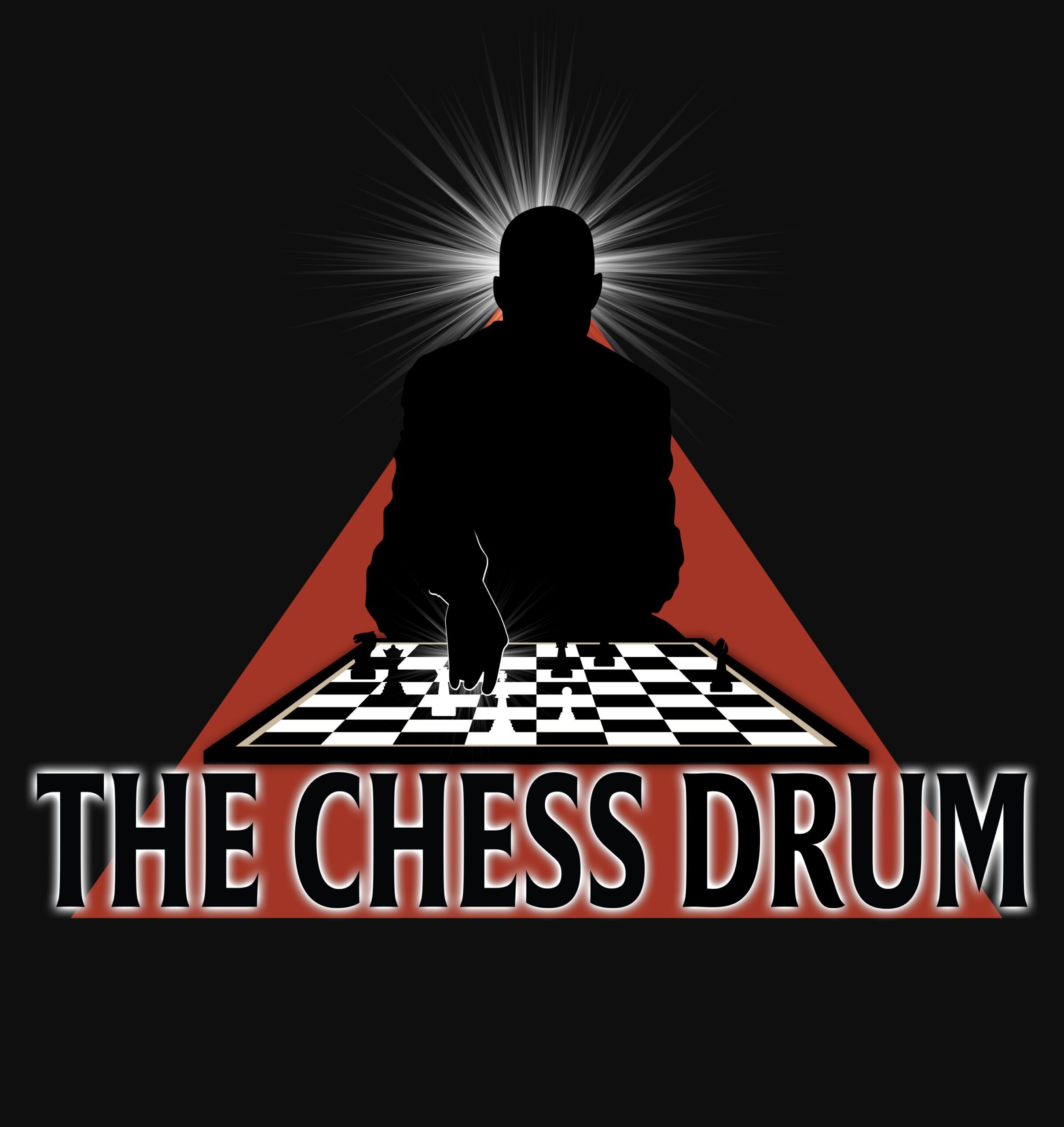
Jerry is truly a one-of-a-kind original. His tireless efforts on behalf of equal rights and justice stamp him as a true crusader of the cause. We used to joke that Jerry was more Black than Black people! He did have some truly radical ideas, but they were all based on his being totally infuriated with any system that separated people based on something as flimsy as skin color. He was always in my corner, and I know he was thrilled when I finally made GM. I am eternally grateful for the many times he offered his services gratis to help run a tournament I had organized. Some people see the future and work to make it the present. Jerome Bibuld is one of those people.
Maurice,
That Unity Tournament of yours was one for the books. I remember when I documented that tournament onto The Chess Drum. I sometimes go through it and recount how revolutionary a thought it was! You put a lot of work into this novel concept. Jerry got a nice assist.
Link: https://www.thechessdrum.net/historicmoments/HM_AAunity92/
I like that funny joke “more black than black people!” in this case it’s for a good cause. What’s not as comical is when you have a black person who is whiter than a white person. I am and we should all be very thankful for people like Jerry, because it’s not often you will find an upright person like him who is willing to join in the struggle for equality.
One thing I appreciate about Jerry is that that he does not try to come off as something he is not. He supports empowerment for people of African descent, but draws the line when it comes to expressing himself. He doesn’t give you slaps, high-fives, soul-brother shakes and speak Black slang like some do (to try to relate). In fact, he would probably find this insulting and the perpetrator would probably earn the title of “moral bacillus”. 🙂 He accepts the fact that he is a “United Statesian” and goes about to rectify injustices against “Afro-Americans”. He made an impassioned speech at the dinner of the Wilbert Paige Memorial where he expressed his desire to be accepted into “Afro-America”. You can tell it was one of his most important speeches. That’s the impression I got.
I once had a debate with Jerry over his term “moral bacillus”. My point was that the term should be “immoral bacillus” since it is a invective. “Moral bacillus” I thought would make the person sound good, or moral and that Jerry should be consistent. He said that they can be moral, but they have the morals of bacilli. Yes… bacilli are bacteria, so his term makes sense.
Deficient of any moral concern is usually more relevant where you have a person of African descent behaving in the fashion of this topic. That’s why it’s not a joke when you reverse Maurice’s humor. Nice way of putting it (moral bacillus) Daaim!
Chessers,
Am sudden by the demise of Arbiter Jerry Bibuld. May the almighty God rest his SOUL in eternal peace.
Regards,
FA Isaac Babu Odiah
I had learned 30 minutes ago of Jerry Bibuld’s demise. I hope to be doing a tribute as more information becomes available.
i Recall meeting Jerry in the mid 90’s at a tournament in N.Y. State and he walked up to me and asked about being a Black Master in chess and proceeded to produce a list of players around the world with various Titles and Ratings that i was suprised to know existed! What a pleasant man, i recall thinking after this meeting, I wonder what is the highest rating ever by a person of African descent on the traditional charts? Chessdrummers?
That list only included “Afro-American” players or players here in the U.S. He did not keep an international list, as far as I know.
The highest USCF rating is Maurice Ashley at 2606.
oh, thanks Daaim, didnt know! lol 2606 thats interesting that means we gotta compete with the top guys to get to 2700!!! lol, Peace.
Hello there,
Am a a chess activist I’m Uganda and would like to continue the spirit of the works Jerry started especially in our small country Uganda.
Most portantly if it’s possible to get a collection of photos about chess icons in Uganda of the time.
Then important also on how we can have a regional tournanent in memory of the Great Jerome Bibuld